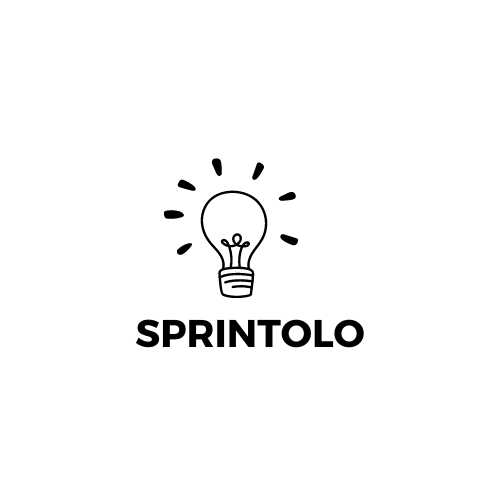Entry-level Jobs:- Therefore, entering the software industry is an exciting time, but it will be tough for a person who feels he or she is not ready yet, mainly because of the interview process. The first software job interview is critical to launching your career whether you are freshly graduating or just switching into the tech sector. This guide is a one-stop-shop comprising all the essential strategies and tips that help you walk into that interview room or virtual meeting prepared, confident, and ready to wow.
Participate in the contest and win!

- Know About the Interview Process A job interview for software is often a multi-step process wherein each step assesses various skills and qualities:
Entry-level jobs:- Initial Screening: Usually a phone or video interview, recruiters will primarily assess your basic qualifications, experience, and interest in the job.
Technical Assessment: This is your coding challenges, algorithms’ problems or take-home assignments. Here, your problem-solving skills and language proficiency in Python, Java, or JavaScript will be tested.
Behavioural Interview: In this round, the interviewer will focus more on your soft skills, teamwork, and how you behave in actual situations.
Final Round/On-Site: This may include questions other than purely technical ones, system design interviews, and time to meet team members or senior leadership.
Knowing exactly what each of these stages entails will help you tailor your preparation to meet their needs.
- Research the Company and Role
Entry-level jobs:- Research the company ahead of the interview. Head to their website, read recent articles in the news and explore their products or services. Look at the company’s tech stack, their mission, and values. It shows you were interested in doing your homework and want to contribute to their success by tailoring the responses to meet the bottom line of the company’s goals. - Sharpen Your Technical Skills
Technical interviews usually revolve around coding, data structures, and algorithms. To nail it, practice is the key. Here’s how you can prepare:
Use coding platforms. LeetCode, HackerRank, CodeSignal, and others have hundreds of problems ranging from easy to hard. Warm up with beginner-level problems, then start working through increasingly hard ones.
Brush Up on Fundamentals. Make sure you know all basic data structures: arrays, linked lists, trees, graphs, etc. Make sure you know the main algorithms: sorting, searching, dynamic programming, etc. Be comfortable writing them in your favourite programming language.
Mock Interviews: Practice an interview environment with a friend, mentor or an online platform like Pramp. Mock interviews help you hone your problem-solving skills and improve communication under stress.
Entry-level jobs
- Communicate Effectively
One common misconception is that technical interviews are solely about solving problems. In reality, interviewers are equally interested in how you approach problems. Effective communication can work in your favour.
Explain Your Thought Process: Explain to yourself what you are doing as you go about coding a problem. Before beginning with the code, clarify what you have learned in the problem statement and what you are going to do about it. This will show the interviewer that you can assess a problem, and he or she will understand why you’re approaching it that way.
Ask Questions: If you do not understand something about the problem, do not be afraid to ask for clarification. This will display initiative, and you will make sure you are solving the right problem.
Iterate and Optimize: After you have put a solution into place, discuss the time and space complexity of it. If optimization is possible, discuss potential optimizations and how they would enhance the solution.
- Prepare for Behavioral Questions
Behavioural interviews analyze how you have approached and handled past situations and how you will fit in with the company culture. Most questions will start with words such as “Tell me about a time when.” or “Describe a situation where.
For example, to answer properly, use the STAR method:
Describe the situation: Very briefly outline the setting.
Task: State your job or your area of accountability.
Result: What did it yield? Measure your contribution if you can. Here’s an example: If someone asked you to tell about a point in time when you successfully managed a conflict with a member of your team, then you might say:
I remember this incident as being during my last year. I was managing a group project in which two of the team members could not come to a decision on the application framework (Situation). The objective was to facilitate the meeting where we would deliberate on the merits and demerits of each framework. We finally decided to prototype both and implement the one that best produced our desired performance benchmarks (Action). This resulted in a well-informed decision that culminated in a successful delivery of the project (Result).
- Showcase Passion and Interest
In addition to the technical competencies, companies recruit applicants who express a passion for software development and are eager to learn more. In an interview, it would be wonderful if you can prove your interest by showing your passion while discussing a side project or participating in hackathons or relevant coursework. You must be able to share what you have already done: attended webinars, contributed to open-source projects, or acquired certificates. - Follow-up
Email your interviewer(s) after the interview, thanking them for their time, and say again, it would be exciting to join the role. It is in such tiny things that you will be able to get a good impression from them as they make their final decisions.
Conclusion
To ace your very first software job interview, you need a combination of technical expertise, effective communication, and a genuine passion for the field. Once you prepare by understanding the interview process and practising diligently, then demonstrating your passion for the field, you should end up being a strong candidate. Remember, every interview is a learning opportunity.
